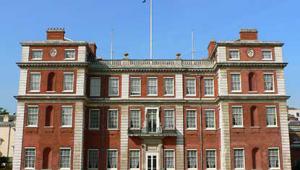The low tax campaign group said councils should be focused on providing essential services, adding it was wrong for town halls to ‘plead poverty’ when they owned such a wide range of assets.
However, the Local Government Association said the report was ‘misleading’ as councils could not use money raised from any asset sales, which are capital receipts, for day-to-day revenue spending on services.
Today’s Council Assets report, based on Freedom of Information requests, found authorities own at least 580 restaurants or cafes, with Brighton and Hove City Council owning the most at 59. An estimated 378 pubs were owned by town halls, with Birmingham City Council counting 17 in its asset portfolio.
Both Bristol City Council and Eastbourne Borough Council own nine hotels, while other asset classes include local authorities ownership of 2,586 farms, 191 shopping centres, 407 golf courses and 7,294 shops.
TPA chief executive Jonathan Isaby said town halls should be focused on essential services rather than commercial assets.
‘The time has come for a serious discussion on what councils should, and should not, be doing – a drastic rethink which saw many of these assets returned to the private sector where some of them clearly belong would be a dramatic step towards a balanced budget and protecting taxpayers.’
However, an LGA spokesman stated the ‘misleading’ report did not account for the positive impact that council-owned assets could have on the local community.
‘Councils are banned from spending the money they make from selling their assets to pay for day-to-day services,’ the spokesman said.
‘Assets fund regeneration, housing and jobs for communities, improve the quality of life for residents and help keep down council tax. Many assets were built as part of housing developments and are integral to providing the essential shops and amenities communities rely on. In many cases, councils will own the land facilities are built on and not the facilities themselves.’
He highlighted that councils were ‘constantly reviewing their estates to ensure they are getting value for money for local taxpayers’.




















